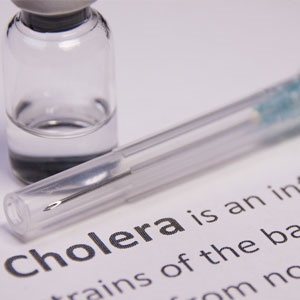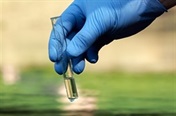
Cholera in the environment
Cholera bacteria occur naturally in coastal waters. They attach themselves to small crustaceans called copepods. As many as 10,000 bacteria attach themselves to a single crustacean. The cholera bacterium travels with their hosts, and spreads across the world as they follow their food source types of algae and plankton which grow as water temperature rises. Urea in sewage and agricultural waste aid algae growth.
Cholera in humans
When the cholera bacteria is ingested by humans, they may not become sick. However, they excrete the bacteria in their stool and can pass the disease to others through the faecel-oral route. This occurs when human faeces contaminate food or water supplies, ideal breeding grounds for the cholera bacteria.
More than a million cholera bacteria are needed to cause illness, cholera cannot be transmitted through casual contact.
Bacteria produce strong toxin
What makes the effects of the disease deadly is the potent toxin, CTX that is produced by the bacterium in the small intestine. CTX binds to the intestinal walls and interferes with the normal flow of sodium and chloride. It causes the body to secrete huge amounts of water and leads to diarrhoea and a loss of fluids and salts.




 Publications
Publications
 Partners
Partners
















